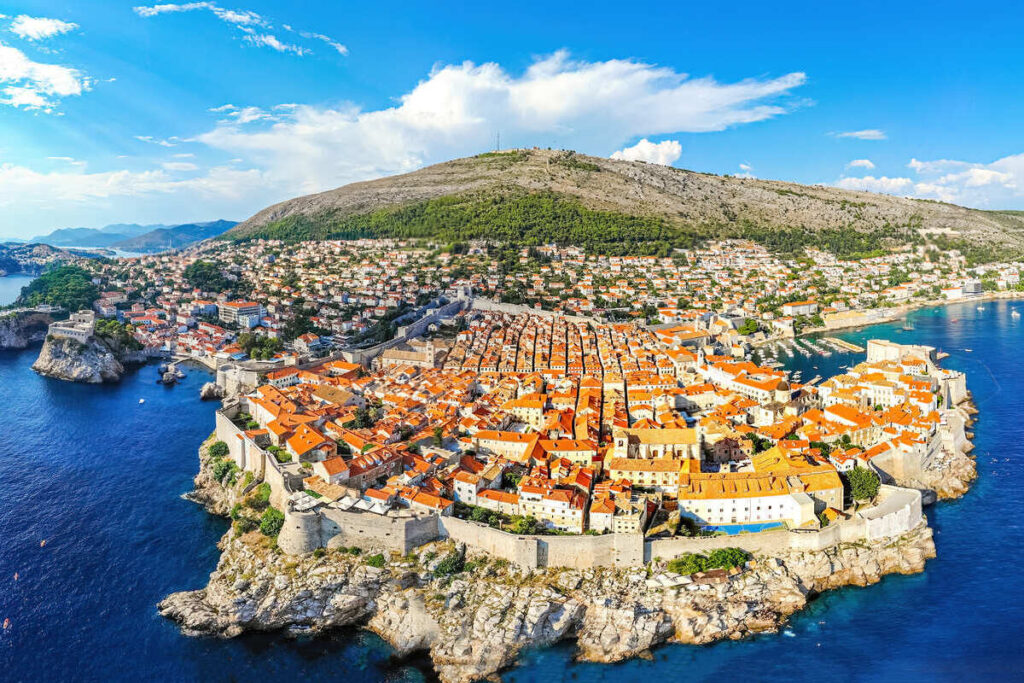Travel Guide
Why Digital Nomads Love This European Country Of Paradisaical Islands And Medieval Castles
Last Updated
With Digital Nomad Visas launching in multiple countries, entry requirements for the category becoming more relaxed, and its unparalleled quality of life, getting to Europe seems to be the ‘end goal’ of millions of remote workers right now.


From the Atlantic beaches of Portugal all the way to the continent’s Southeastern-most tip, in Bulgaria’s up-and-coming Black Sea Coast, nomads are finding new homes in cobbled towns with origins lost to time, impressive levels of safety and temperate climates.
There is one country in particular, however, they seem to be particularly enamored with, and we can’t really blame them when it’s home to numerous paradisaical islands and fairytale castles:
Croatia Leads The Way In Digital Nomadism In Europe


Croatia is currently the third best-rated digital nomad destination in Europe, beaten to the top spots by all-time favorite Spain and budget-traveler haven Romania only, as well as the fifth worldwide, as ranked by Visa Guide World.
It has a ‘Digital Nomad Score’ of 3.62/5, its own Digital Nomad Visa that enables digital workers to remain in the country for longer than the restrictive 3 months, a lower living cost than its Mediterranean counterparts, and higher levels of safety.


Croatia is a success case unlike any other: it went from a war-torn, post-Yugoslav state to one of Europe’s most stable countries and trendiest sunny destinations in a matter of years, and now, it’s reinventing itself yet again as a nomad hub.
In fact, it pioneered Digital Nomadism in the Old Continent, being the first member of the European Union to introduce a Digital Nomad Visa (DNV) as early as 2021, at a time when health-related travel restrictions were at their peak, and it’s been on a stellar rise in popularity since:


According to industry sources, around 5,000 nomads reach Croatia every month, making it one of Europe’s leading countries for ‘workcations’ (a.k.a. when nomads combine work and leisure on a single trip).
Why Do Nomads Love Croatia?
A digital nomad’s love affair with Croatia can be explained in five main subcategories:
- The culture
- The nature
- Nomad infrastructure
- Affordability
- Safety


The Culture
Croatia is one of Europe’s most culturally-charged countries, with a Dalmatian Coast littered with historic cities, including Zadar, a walled port with a pastel-colored Old Town, the vibrant Split, born out of the walls of a 4th century Roman palace, and of course, the gorgeous Dubrovnik.
Though it is not the capital, Dubrovnik is Croatia’s most iconic postcard, with travelers flying from across the globe to lay eyes on its impressive Lovrijenac castle, city walls, cobbled alleys and centuries-old Romanesque churches that all featured on Game of Thrones.


The Nature
This is a country of over 70 islands, teal-colored Adriatic waters, and the Dalmatian provinces enjoy year-round temperate climates: if you’re looking to escape the tourist crowds in Dubrovnik, or Croatian capital Zagreb’s busy city life and freezing winters, there’s no shortage of options to consider.
Two increasingly-popular nomad ‘ports’ offshore are the paradisaical islands of Brač and Hvar, two of Croatia’s largest, dotted with medieval forts and small coastal settlements clinging tight to their centuries-old tradition, and lapped by unspoiled beaches of sand and pebbles.


Nomad Infrastructure
Croatia is one of the most prepared countries in Europe to welcome digital nomads: other than its DNV, which enables nomads earning over $2,723 per month to reside in Croatia for extended periods of time, it has a wide availability of long-term rentals and even hosted Digital Nomad Villages.
Zagreb, Rijeka, and Split are all among Europe’s top cities to be a digital nomad, with their impressive number of work-friendly cafes and coworking centers, slow-paced lifestyles, thriving expat community, and affordable eateries.


Affordability
Croatia is one of the cheapest countries in the European Union – and the Mediterranean – to be a digital nomad: a one-month stay in the inland metropolitan zone of Zagreb will set you back by an average of $1,617 per month, with cheaper prices observed for rent and groceries.
On the Adriatic Coast, Rijeka shines through with living expenses totaling $1,741 per month, and even Croatian capital of tourism Split is fairly affordable by European standards, with nomads expected to earn above $2,017 monthly to lead a comfortable life.


Safety
Last but not least, Croatia is considered one of the least-dangerous countries in Europe to be a digital nomad, as it enjoys low, if not negligible rates of urban violence, and it’s not targeted by extremist organizations like France or England.
Nomads can reside in the sunny Adriatic gem knowing they’re highly unlikely to get pickpocketed when going for evening strolls in their neighborhoods, nor subject to violent assaults, whether they’re in bustling Zagreb, or a quieter coastal town.
Feeling inspired? You can read more about Croatia and all the incredible, off-path sunny destinations it lays claim to here.
↓ Elevate Your Travel↓
Sign Up Now For Travel Off Path Premium! No ads, VIP Content, Personal Travel Concierge, Huge Savings, Daily Deals, Members Forum & More!


SUBSCRIBE TO OUR LATEST POSTS
Enter your email address to subscribe to Travel Off Path’s latest breaking travel news, straight to your inbox.
This article originally appeared on TravelOffPath.com
Opinions expressed here are the author’s alone, not those of any bank, credit card issuer, hotel, airline, or other entity. This content has not been reviewed, approved or otherwise endorsed by any of the entities included within the post.

